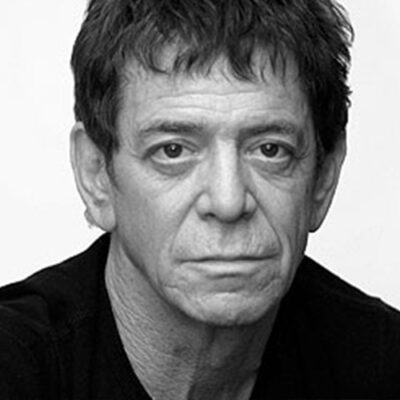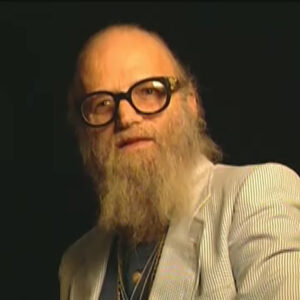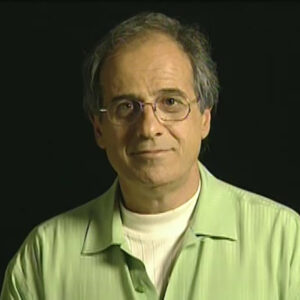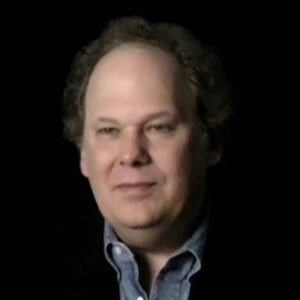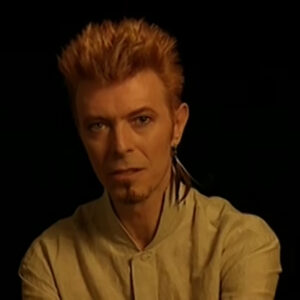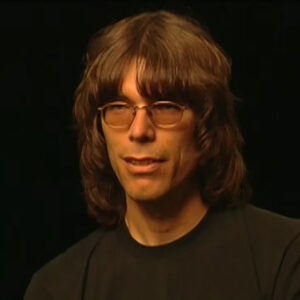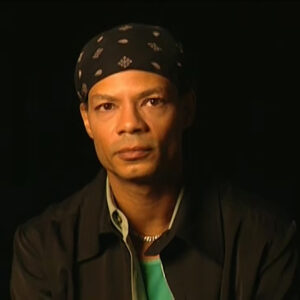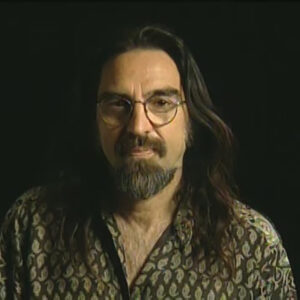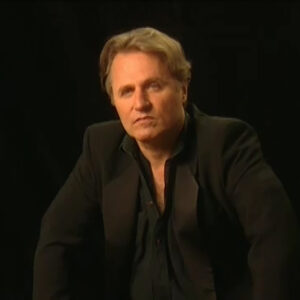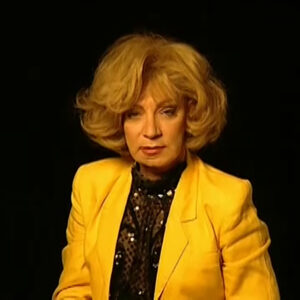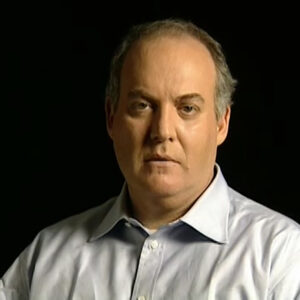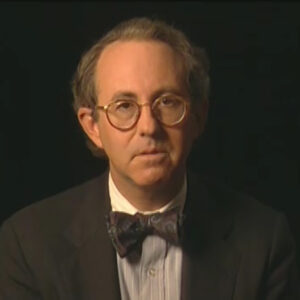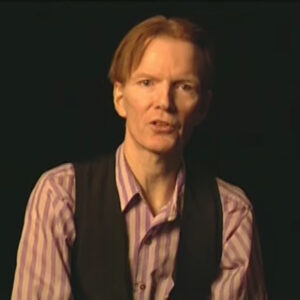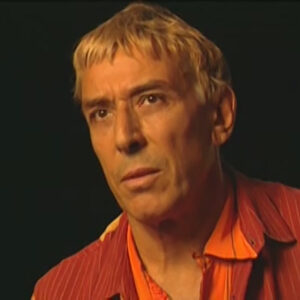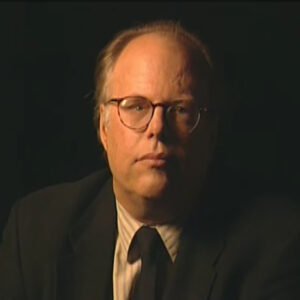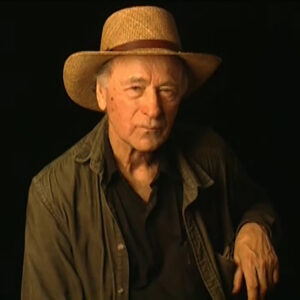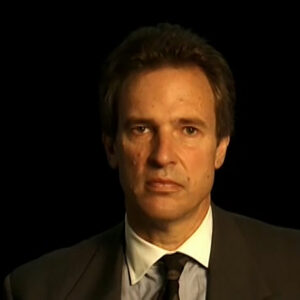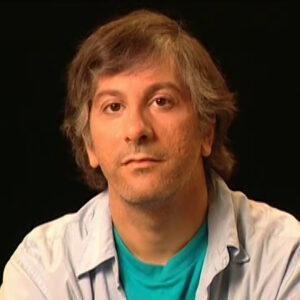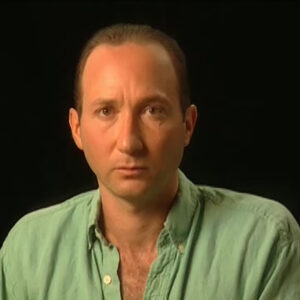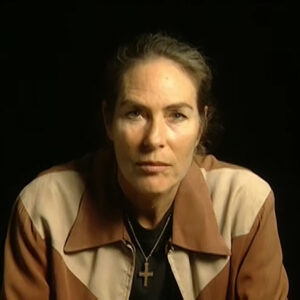Speaker It yourself.
Speaker So now that I’ve said it, maybe you’ll got a more written down in front of you. You’re really lucky.
Speaker Ask me what’s next. Let me start with your words.
Speaker Well, you know, when you talk to Lou Reed becomes clear very quickly. I think that he has great artistic ambitions. You know, his great literary ambitions. He writes his songs. He doesn’t just write things that are going to sound good. He writes things that will have a sort of artistic resonance, if you like. And that came from the Delmore Schwartz. That came from his early ambitions, if you like, to be a kind of a Frenchman in New York, almost, you know, someone who gave more than was asked. But, of course, when he actually started the Velvet Underground and started making the Velvet Underground music that I think still haunts music today in a very real way. I mean, in a sense, what what happened there was he discovered rock, didn’t he? I mean, he had the poetry. He had the words. He had that feeling. For observation of street life. That was the Delmore Schwartz inheritance. But what he added to it was that thumping, powerful Velvet Underground noise.
Speaker You know, you could use her in a way to find me. What is that sound of the. This is such an important influence on somebody, other bands. How do you describe that sound?
Speaker It’s if I had to find a word.
Speaker I won’t repeat the question.
Speaker I mean, if I had to find in a word to describe what Velvet Underground means, it did. I mean, pretty big, very long and rather boring words like visceral or something. Meaning gets you straight in the guts, doesn’t it? Because I what’s what’s wonderful about Velvet Underground music. We listen to heroin waiting on a man. These songs for a they don’t date. I mean, they just don’t date. You can listen to them today and you will still be as excited by them as you as I was when I was a student. Go to university, put it on. You do naughty things. Sure. But also you get your move by your brought into contact with what you feel is real life, real emotion. And that combination, if you like, of the artistic and the gut feeling. That’s what they did. And that’s what rock and roll at his best has always been about. Love Underground is produced in a clutch of the best records ever made as far as I’m concerned. I mean, particularly with the Velvet Underground and Nico that the cliche album with the banana on the front. I mean, that can’t be a student or serious student in the world. That hasn’t got a copy of that. You know, I mean, I had two of them because I wore one out and started on the other.
Speaker The early influence. How do you see that?
Speaker Well, it’s really hard to know, isn’t it? Because people come back with different stories. I mean, Andy like to say he was a manager who will tell you and he didn’t really do much, except what he always say is that Andy made things possible. And that’s the impression I get from this distance, is that the great thing about Warhol was that he was a kind of catalyst. He had a great nose for people. You know, someone walks into the factory off the street, you look at them and you’ll give them a chance, you know, and whatever he did with the Velvet Underground was he’s sort of enfranchised them. He made them possible. And whether he actually had any real input in terms of musical style or direction or. Look, I doubt I doubt very much. But he made them possible. He gave them confidence. And Lord knows, if you look at what’s happening even today in America, the Velvet Underground, as far as I’m concerned, are not being feted enough yet. You know, they’re not being given the merit that they deserve. But Warhol gave it to them straight away.
Speaker You talked about the other day about how you look at it again, the Beatles, the Stones and the lovers. What’s really freshest is the mark. There were developments.
Speaker Well, if you look at 60s music, I mean, do you remember? Okay. You remember the Beatles? They were great. But you listen to the Beatles today, and it’s old music. Isn’t it beautiful? It’s lyrical, but it’s old. It belongs to the 60s, I think. You listen to the Rolling Stones today. OK. They’re still around, but they’re 50 year old men squeezed into 15 year old’s trousers, aren’t they? They don’t look serious somehow. It’s not. It’s not real music anymore. Dylan, a great innovator. But when’s the last time Dylan did anything meaningful? But it put on a Velvet Underground record, and it’s as if it was recorded last week. You know, there there are there are noises they made things that they did. There are still so contemporary. And you can be sure that as we’re speaking now in some little Garai, somewhere in Britain or America, there’ll be some spotty little youth trying out the chords of Sweet Jane. And is doing it because he’s been inspired to buy by Lou Reed in the Velvet Underground. And that’s their great legacy. You know, they may not have sold that many records at the time, but what they did is unbreakable. It’s unquenchable. It’ll it’ll always be there. And people will always find it in strange places, I should add.
Speaker Can you talk about each member, including how you see those?
Speaker For three desperate, desperate, desperate, desperate people make this kind of music.
Speaker It’s it’s hard to know exactly what was happening then, you know, when I when I met the band, it was many years later it was near as damp.
Speaker Three decades later, there were different people. But you still felt, you know, it’s like old rock stars never quite lose their relationship with each other, do they? That the things that were in place in the sixties were still in place at the beginning of the 90s. And, you know, Lou was the artistic one. Lou is the one who was a genius. I mean, he knew it, but he was one, you know. So he had a right to feel like a genius because he was one John Cale.
Speaker Well, you know, I mean, he was a brilliant man, too. And his musical input was the thing that in many ways lifted the Velvet Underground out of pure rock and roll and made it something more something a little bit of European avant garde gave it greater. You know, David gave it just a little bit more substance.
Speaker He was a real talent. Those are the two real big creative forces, Mo. She was a mother to everybody. I mean, when we went on tour with her, with the Velvets, you know, she brought her whole family there. And she was she brought her real family and the Velvets were her family. You know, she was a great maternal force for good. I think, you know, she didn’t drink a lot of smoke a lot. Take a lot of drugs. She was a wholesome person. And you feel that she probably was that to that in the sixties. But when she got behind that drunk, she bang the hell out of it and had great, great spunk and sterling. Well.
Speaker Now, when when we were making our film with the Velvets, I ended up with stirring quite a few occasions, taking one or two or three or four beers too many across the capitals of Europe. And he’s very philosophical guy. You know, he’s a universal. He was a university professor. He liked to think about things.
Speaker And he brought a certain ruminative quality to stuff. And and his music was actually much simpler than the man.
Speaker I mean, he always I thought his music was gave the Velvets a kind of directness of sort of Rocksteady background backbeat. But that’s the band was very philosophical, very interesting, very complex character. And you could see that they must had some great conversations that not in the sixties. And Nico. Well, I. I met Nico once, so I was doing a piece for her about her as a journalist. I once had the chance to interview her. This was long gone past six days and she was actually living in England then in Manchester. And it involved be honest and rather sordid situation with a punk rocker from Manchester, a quarter of her age. But she was she was a remarkable woman. I mean, I interviewed her at a club in London one afternoon and, you know, she insulted the sunshine.
Speaker This this dark, gloomy, nocturnal creature who used a certain sort of sexy degeneration is all I can call. It was a remarkable, remarkable force. And she had great charisma. She was washed out and she was finished. Her voice had gone. Her looks are gone. But it’s like almost like a Marlene Dietrich like of intensity and coolness was still there. You could just see this woman being so sorry.
Speaker I think it’s sort of like the songs that she sang on those albums and talked about. In a way. There’s some lovely melodies, but they’re right here emotionally isolating.
Speaker Yeah. I think I’ll be your mirror.
Speaker Reflect what you saw in that nasty German accent that she had. I love the things she did with the Velvets. You know what? When they when they reformed, it was John Cale that sang I’ll Be Your Mirror and Found Fertile. And it was a different song. I mean, she only really made that one big contribution. But I think it was an important one. It made that particular album the perfect album, because apart from the great songs that, you know, Lou performed and sang and the classic velvet material, there was this other thing, this extra ingredient, this cold Germanic, rather haunting, spooky voice singing these very beautiful songs. It gave a different texture. And I mean, not that you ever get bored with an album as good as that, but just in case you ever should get bored with it. There was this whole other thing coming along, these very lyrical songs with Nico.
Speaker Can you talk about those writing? Before we get into this? Others were seminal.
Speaker I talked to him about heroin because it’s such a loaded subject. It’s such a loaded song that inevitably it’s the one you most want to know how he came to write it. I mean, the image I had when I was a student and I put that song on the fantasy I had was a song junked out New Yorker sitting there singing the praises of heroin late at night. You know, when I met Lou and talked about it a lot and not just in an interview situation, but, you know, we’d talk about it afterwards and a drink over some drinks.
Speaker And then that song for him was a work of art in the sense that. Just as in 19th century French literature, there a lot of writing about people imagining themselves to be in certain decadent situations. You know, the classic symbolist, the classic Simplist book is about a guy who lives in Paris but imagines he’s traveling around the world without actually stepping outside the front door. There’s a scene by Horseman’s and Lou Reed was that kind of writer. Now, I’m not saying he never touched anything illegal, because I’m sure he did. He knows he did. We all know he did. But that song was about an imagined situation. It was a piece of literature about a man imagining what heroin Rush was like and imagining it in a spirit, if you like, of the fantasy lover, the kind of French decadent literary tradition. And of course, people always take things so literally because the songs written in the first person, I think there’s a junkie confessing, but it wasn’t that way. It was written in the first person as a narrative voice. A way of writing is one of the reasons why Lou Reed has to be treated well, just as a great rock star, but also as a writer, a voice of the city of note.
Speaker In a way, I wrote because he wrote in the point of view of the character people that. It attaches so much more to him as a person, but it’s not necessarily true. It’s sort of what you’re saying.
Speaker I mean, you know, you kind of he’s you hear these songs, you think, oh, God, is this these that he’s not really any of those things necessarily.
Speaker Yes. He writes invoices. It’s a classic narrative technique. You know, you are not one character. You are many characters. You populate your work with characters. There’s the guy who’s singing in heroin. There’s the guy who’s waiting for his man. There’s the woman who is the fan for. You know, there’s a woman who’s looking into the mirror, which Nico’s singing. There are all these characters. And they were all written by Lou Reed. But they weren’t necessarily Lou Reed himself. They were projections of a kind of New York identity. And that’s a great it’s a great genre, isn’t it? I mean, in literature, no one would bat an eyelid if Lou Reed was Nelson all green or something. Writing a book about what you know, what it’s like to be a character on the streets of New York or Chicago. No one would bat an eyelid, but because it was a rock song and because people didn’t really know how to read rock songs in those days, immediately the fingers came out.
Speaker You know, the man’s a junkie, demands this. The Velvet Underground are dangerous. They didn’t people didn’t understand it for the art that it was.
Speaker And also because they couldn’t get airtime because of who they were. Because a lot of times had.
Speaker That’s absolutely right. I mean, if that if those songs had been passages in in a piece of literature, you know, then no one would bat an eyelid. But as it was, because rock music was seen to be the young person’s art form, you know, scare mongering, shock, horror, our youth is being corrupted. People didn’t. People couldn’t be adult about rock music. They couldn’t accept that rock music can tackle adult themes, that rock music can be serious and could take itself seriously, which is what Lou Reed always does. I mean, that’s the first thing about this man that has to be accepted, that he takes the things he does seriously. He takes rock music seriously, accepted as an art form with real integrity and real purpose. And his songs are like that.
Speaker Perfect. You’re doing so wonderfully. I know. But, you know. Let’s let’s maybe finish with the Velvet, as is. Any else you want to say about the doubts of that period, then we’re going to move on to do anything else that comes to mind or any particular songs.
Speaker I mean, I know Bowie plays white light white heat all the time. Want to talk about influences of Velvets at this point?
Speaker It’ll come out in other things. Yeah. So. So salud.
Speaker So the Velvets and as we know and then we kind of get to this period where he has the solo album and give giving comments on that was the Lou Reed album, which I can tell you what, songs are a little blur.
Speaker But.
Speaker On the one side is going down walk and talk, and Lisa says, Berlin, I love you. Well, she makes you feel right to the ocean. And some sort of Delbert’s.
Speaker Yeah. Yeah. That’s the kind of new European phase. Yeah. So there you go. To transform it. Yeah. What do you what can you say about that. Oh yeah.
Speaker When the Velvets finished, you felt that Lu was the one who had least trouble finding his own voice. You know, he was his own voice to begin with. So there was never any kind of massive traumatic search for a solo direction. His solo direction was him and the songs that came out of that. I mean, there were perhaps some more European flavor, you know, songs like Berlin. It’s almost as if he’d gone in search of Nico’s roots, not his own. You know, in search work, the kind of 1920s, 30s cabaret films. But the you know, the solo albums and that clutch of songs, Satellite of Love and all those wonderful songs that, again, you know, once you’ve you’ve heard them, you never forget them. Seemed to me to be. To be the sorts of songs that he would have written with the Velvets anyway, you know.
Speaker But when he did them solo, perform them solo. Perhaps they were sparse. Perhaps those more directness to them, perhaps without the others. The voice you hear is, is it’s just Lou Reed. And, well, I mean, that’s that’s a magnificent thing. Although he can’t sing properly. His voice is a magnificent thing.
Speaker And the Bowie collaboration transform our walk on the wild side.
Speaker I have this image of of the whole of rock and roll. There are two or three characters who suited each other. Floating around in different countries, different continents, different bits of the world, and some sort of huge magnetic force drew them inevitably together. And if ever something was going to happen, it was that Lou Reed and David Bowie were going to pull themselves to each other and do something together. It was no surprise that they worked on Transform. I mean, they had had so many things superficially, at least in common.
Speaker I mean, they were both slightly Moutray rock stars. They weren’t common garden mail, you know, ordinary rock star.
Speaker They had a as almost like an unnatural, super worldly quality, didn’t they? They were glamorous. They were associated with a kind of darkness, a sort of urban gloom, if you like.
Speaker And they were, I think, both geniuses.
Speaker And they could spot each other from the other side of the Pacific. You know, let alone the Atlantic. These people that I met him about, they knew they must respect each other’s work. They had to come together.
Speaker Are there any other collaborations you think of? I really care. It says it’s almost unique trans Atlantic connection. Are there any other musicians that come to mind?
Speaker No, not really. You know, Bowie was always as an Englishman. He always seemed to be sort of more American than most Englishmen. There was something about him that aspired to a bigger canvas than this little island of England. And I always felt that Lou Reed was somehow more European than a lot of Americans. He felt that he’d read on regime and some air and some good poems. And somehow, somewhere between the two, they met and bonded properly because each had something the other liked Berlin with the next album.
Speaker And, of course, had made a good fortune, Caroline says. One. How do I how do you think it feels? Oh, GM, Caroline says to the kids. Fabulous. Yeah. The bad and sad song.
Speaker And of course, Lou didn’t even write it in Berlin. Yes. Yeah. It’s a great sound bite.
Speaker Lou wouldn’t have to go to Berlin to write a Berlin album. I mean, the man the man is a writer. He can imagine himself. There are many such. I have a vague sense of what the place was like and he’ll make it real. And the songs on the album, I mean, it feels Berlin ish, doesn’t it? It has that spirit of angst about it.
Speaker Remember, Berlin then was a divided country, decadent reputation on one half, but on the other half of Berlin, nasty, dark, forgotten socialist country, a divided country, a country, a city with a broken heart. Perfect lurita rain.
Speaker When it came out, it was very badly received. I remember. Yes. I loved the chorus. I’m sure I did. But tell me what you remember about the critics.
Speaker Well, there was a period when Lou Reed’s records didn’t seem to get good receptions. I mean, he had a bad reputation by then.
Speaker I mean, whether he deserved it or not, there was an aura about him of a guy who didn’t turn up a concert, who was who was always washed out.
Speaker You know, and I suspect most people this is when you think about what he’s done since seems extraordinary. But most people suspected. Well, Lou Reed’s finished. You know, we’re talking about the early 70s. The man’s gone.
Speaker And, of course, we know now because we’re talking 30 years later, nearly 20, 25 years later, that that was very and nothing could be less true. But at the time, it seemed that he was finished, you know, ghastly stories of people living in England, ghastly stories used to circulate about what Lou Reed was up to. I mean, he didn’t appear in the rock magazines. He appeared in the back pages of ghastly newspapers with these stories about about his behavior, which were frightening. And people read about the children say, don’t do that. Otherwise you grow up like Lou Reed, you know? And yet he still he was producing actually remarkable records. You know, they may not have been that well received by the music press, but if you listen to them now, if you like, in a calm post hysteria phase, you can see this was great music. This was really great music.
Speaker And any particular songs that you love from that? The kids read it to you again one day. Good fortune teller says, Oh, Jim, I love more.
Speaker For me that the album as an entity really had that sort of sense of it being bigger than the parts in many senses.
Speaker It’s also a it’s more it’s a whole it’s really a one big, long story.
Speaker Yeah. It was a maybe a first. Rock record.
Speaker Well, you get the sense with Berlin that I wouldn’t call it a concept album because I didn’t think it was anything as a strict as that. But you get a sense that there was a tale being told about a real place.
Speaker And of course, that’s something that Lou went on to do in the future. And when the New York album is is very much a set of songs that are held together by a kind of unfolding theme, it’s something he seems to like doing. It’s very literary thing to do to try and write a clutch of songs, if you like, or perform a clutch of songs that add up to a picture of a place, even if you have been in that place.
Speaker We can skip ahead. I mean, there’s Sally.
Speaker What is the challenge in what? What can you tell us what the story is, an outsized story?
Speaker No, I can’t remember. So long as I listened to it. Sorry.
Speaker It’s a very strong castle. I loved Street House. That was not too far. That’s coming up. All right.
Speaker Rock and Roll Animal was next with was just sort of really rereleases of things and. Yeah. So you can’t dance, which says, you know, I shouldn’t even be soul or something, but I actually went. And then comes some Lou Reed live. And then metal machine music. Yeah. Let’s. Which is 1975. And those sort of punk. And we talk about.
Speaker Yeah. There’s a side of Lou Reed that’s always light noise. That’s the only word for it. Noise. However, it can be a really lyrical writer.
Speaker His songs can can be as beautiful as a flower. They can be really delicate and really precise and simple. But there’s a beast in him, a guy that wants to get the guitar. Turn it up to full volume and shut those chords right through your head, you know.
Speaker And metal machine music was the beast given its head. Now, a lot of people couldn’t and perhaps still can’t listen to it in any song, in any sort of simple, easy way, because it’s not really meant to be, I think, an hour. Well, who am I to speak for him? But as far as I’m concerned, it’s not an album you just put on it. Even listen to it’s an album that you experience. It’s only worth listening to. You’ve got a great stereo system. Very, very tolerant neighbors and no children. Then you sit down. You stick this record on. You turn the volume right up. And this music, this howling, screaming, angsty sound of in a new read and in a New York comes out. And I don’t feel I could listen to it 30 times in my life. But there have been three or four occasions when I found the nerve to do so. And I can only say it’s it’s an experience like no other. The Beast in in Lou Reed. When you hear it on a great stereo is a extraordinary experience. And it’s a it’s a remarkable record. It’s almost of all the records that he’s ever made. It’s the one that you think will take human beings 100 hundred years to get round to liking properly.
Speaker That’s so beautiful. Thank you. Comes at this time. Grandfather.
Speaker Yes. You know, Lou Reed was famous for all sorts of reasons. At the end of the 70s, not all of them to do with music, of course.
Speaker But he had this great image, didn’t he? I mean, yes, he had the shades. He had the leather jacket. He had the drainpipe trousers. He always looked like a punk. Long before punks were invented. This man was a punk, wasn’t he? And in England, if you went down the Kings Road on a Saturday and watch people hanging out, every second man you met looked like Lou Reed or tried to look like Lou Reed and the others tried to look like Marc Bolan because they had the longer hair and they were the wimps, the tough guys, the ones you wanted to be like look like Lou Reed. And he inspired a generation, of course, musically, because most people who joined a punk band learned to play Sweet Jane as their first song. It’s got simple chords. It’s great. It’s about girls. It’s direct. You know what could be better. So the music was extraordinary.
Speaker But what they also liked was the aura. This wild, untameable New York guy who doesn’t give a damn. You know, they love that.
Speaker And that aura, which he’s still got, incidentally, even at the age of a grandfather, is something that people coveted. And. Entire bands grew up looking like Lou Reed, the drummer looked like him.
Speaker The bases look like him. The lead singer looked like him. The audience looked like him. You go to concerts in 1977 and there were a thousand parades there, you know, playing or dancing or selling your tickets or whatever. It was extraordinary. And no one else could that be set off?
Speaker There was nobody else who inspired punk in that way. I mean, there was nobody else. You know, John Lennon was a wonderful force for good. And people liked him, but they went home and listened to him. You know, they didn’t go to places and try and be him in that same way.
Speaker Anything, Karen, that I should remember.
Speaker What’s your favorite Velvet Underground song? Let’s get that.
Speaker Before we can actually pick that up with the belt experience.
Speaker I mean, I’ve got so many favorite velvet songs I do. I’ll tell you what I really like. I love Pale Blue Eyes. I heard most singing it during the reunion tour. And. There’s a there’s a bit of Lou Reed that always write songs that gets you right here. And hearing Moe sing that lovely song. Not always in key. Few wrong notes. You know, as it is indeed in the recording, incidentally, we’re losing it. It felt so real. You know, he always goes on, doesn’t he, about how the best songs, only three chord simple melodies. He makes a point of that. Well, you couldn’t ask for a simpler song than Pale Blue Eyes. But that’s what gives it that.
Speaker That’s sort of haunting directness and that kind of sadness that he’s great and he’s really great at. Presenting a certain kind of absolute delicious sadness.
Speaker I love that song. I love it. But I love so many of them. You know, if I had to dance, it wouldn’t be to that would beats some of the other underground songs.
Speaker Let’s jump to straight. So which is it you say you like a lot? Give me some good times. Third Street. So I want to be black. Yeah. Yeah. The story of his life.
Speaker Real good. A shooting star. Wait.
Speaker I think Street Hustle is one of his most underrated records. I love it. I came across almost by accident in the sense that I hadn’t really gone out to buy anything right. Purposefully. But if I bought the 12 inch single Gemba twelve eight singles I brought, I bought that first and I put it on. As the song she has, so it’s it’s like an opera. It’s wonderful cello.
Speaker Beginning two, two, two, two, two, two, two, two, two, two.
Speaker And after about thirty two to two. Do you think, oh, hey, where’s the song?
Speaker You know, it goes on and on and on till it gets right under your skin. And this I think it was done with a tape loop or something. This channel, you know, spooky instrument anyway. What’s Lou Reed doing with a cello? You know, spooky is what gets under your skin. And this song starts and it’s a tragic song. It’s another one of his low life songs. Guy woman drugs in a bad, bad, bad scene. But it unfolds slowly and it’s like an opera. You know, you get caught up in. This tale is told. The music keeps ta ta ta ta ta ta ta ta ta. Haunting you artist. I love that record. I love it. I play over and over again. Still, it’s just about my favorite. The latest bit of Lou Reed.
Speaker Can you tell me how does these things that you just talked about. You don’t really find in other musicians? I mean, what is unique here about that, what you just said? Are you. How you sort of separate him from the rest of the songwriters and kind of bands and musicians, he’s terribly brave.
Speaker It takes subjects on, obviously, that other people wouldn’t take on. But he also takes on sounds that other people wouldn’t take home. You know, on Street Hassel, it’s this beautiful cello on, you know, on the on on the Andy Warhol songs for Drella. You know, there’s a song, essentially a spoken piece, The Diary, where it’s John Cale just talking, you know, over a quiet musical background that these brave things, the man has never, ever become complacent, always reinventing himself, always doing new things.
Speaker And, you know, rock n roll is only what is it? It’s, what, 50 years old. Let’s that’s being generous. It’s not and yet it’s never had a chance to grow old before because it’s a new art form. We’re seeing the first people who are rock stars becoming 50 now because it’s traditionally a young person’s art form. You think, OK. You’re over the hill at 20. Where does that leave geniuses? If you’re a rock star, you’re a genius. How are you? How do you remain pertinent when you’re 50? What do you do when you’re 50? Well, look around you and I’m afraid you’ll see that the answer is often nothing. Your name me some people who were rock stars in their 20s, who are now in their 50s, who are still doing great, relevant things.
Speaker So at 50, I was actually doing songs with our New York. Talk about your sense of that 50.
Speaker Yeah, well, I had a sense of Lou Reed disappearing for a bit. I mean, he he had several disappearances in his career, I suppose.
Speaker But there was a time, I guess, second half of the 80s when you just didn’t hear about him very much. You didn’t know what he was doing. And then I happened to read somewhere a little piece about songs for Drella, an opera about Andy Warhol. I saw I read it as an opera by Andy Warhol. And I thought, this is wrong. I mean, we should do New York first, shouldn’t we?
Speaker Yeah. Okay. So I guess there’s a sense of his.
Speaker Period. Really from eighty six, which was mistrial, which was that after the sensations legendary that whole period of early 80s. And then there was three years of Noel. And then came New York. Yeah. And I can read you that you want the songs that are on New York Dirty Boulevard.
Speaker Yeah. So actually, could you just read. Yes, I. So Romeo and Juliet Halloween for a brilliant 30 boulevard endless cycle. There is no time last great American Aweil.
Speaker Beginning of a great adventure. Basilar of faith.
Speaker Think of you. Hold on. Good evening, Mr. Waldheim. Christmas in February. A straw man dies, a mystery recipes and favorites.
Speaker A great record. Great record. So they’re starting with The New Yorker that the New York album, when it arrived, surprise everybody.
Speaker Certainly in England. It surprised everybody would slightly forgotten about Lou Reed. We hadn’t heard from him for a while. His last few records hadn’t been great successes, although they were actually really good records when you listen to them carefully.
Speaker Then along came this this masterpiece. I think it’s one of his his very best albums. I really do. I was working at the time when on an art show on television called The Late Show. And in fact, there’s a director on it called Mary Harron, who went on. She went on to make a film called I Shot Andy Warhol, which came out last year, and she was doing a piece about the new Lou Reed album. She was a comedian, so she had an instant emotional entree into the North American psyche. And she said, hey, Lou Reed’s got a new album. Come on, listen to this. So I listen to it. And to be brutally honest, my first reaction was this is a bit wordy, has a lot of words here. Where’s the music? It took me a couple of listens, but once I was hooked. I mean, what a great record for a man who’s had that much of a career already to come up with a thing as new as that, you know, Dirty Boulevard, Halloween parade. And these are some of the best things he’s ever done. And they captured the spirit of New York, of course, but also of his own of his own desolation. I think his own disillusionment. That’s what that’s what really gives the song that edge. It’s the tear in Lou Reed’s eyes. And it the Halloween parade ain’t gonna happen anymore. AIDS has devastated them in the Hudson River, is full of garbage.
Speaker That’s what civilization supposed to be. These were great thoughts. Big thoughts. It’s as if he discovered they were living in New York. Most of his adult life. But it’s as if he discovered finally that it wasn’t just telling nice stories about interesting characters you met at the factory. That was interesting. That was good. It was also trying to find something bigger to say with these characters. And what he found was a sort of lament, I guess, about not only the passing of the innocence of the 60s, but also about the state of the modern world.
Speaker You know, civilization sucks. If this is civilization, let me off. And that was that was what made that record such a great record. Not only was it for a wonderful tunes and brilliant bits of poetic writing, but it had this big, important theme and political to which there wasn’t, particularly in the past, and things like the Waldheim.
Speaker I think Lou’s always been political. He might disagree with that. But in an important sense, he’s always been against the establishment. He’s been against the corruption of government. And he may not it may not have found very obvious party political names and tags in the past. But underneath, there’s always been spirit driving him. And of course, it’s one of the reasons why he he has been, I think so unfairly treated in a way by by the by the New York establishment, by the American rock establishment. I mean, how did it take this man so long to get into the Rock and Roll Hall of Fame? I mean, that’s an absurdity. You’ve got one of the great geniuses of postwar music, and he has to hang around while these also rans get in there before him because they write cute songs about nice subjects and he writes bad songs about real subjects that are important. And he didn’t ever set out to curry favor to make himself popular. And that annoyed people, I think. And it’s one of the reasons why he has not really been given, I think, a lot of the credit that he deserves. And he has great talent for knowing people. I think he enjoys annoying people. But in a sense, it backfired in that, you know, if if if he was the sort of guy who collected gongs and Grammys and awards and citations.
Speaker He would be upset that he hasn’t had more because he deserves them in a sense, of course, what he did is very political because to talk about a gaze at a time when nobody really was to talk about AIDS before people were.
Speaker I mean, he he takes on subjects and people were always afraid of ending things for the gay period is one in particular, I think is just terrifying to most people.
Speaker He’s very open to atmospheres. You get that from talking to him. You sense that he’s got his eyes open. He knows what’s happening around him. And there are many ways I get this get a feeling that New York itself nourished him at the time of the New York album. However dark and gloomy it was, in a way, there was something about the city’s plight which really connected with him. And he really wanted to describe it and to give it a musical form.
Speaker OK, so that’s it. Is that how you think?
Speaker Well, I was working in England for Channel four television and I’m reading I’ve opened a magazine. I think it was a new musical express or some music magazine. And there’s a little paragraph at the bottom. It said Lou Reed, performing songs for Drella Song Cycle about Andy Warhol, Brooklyn Academy of Music. A few weeks time. And I thought, wow.
Speaker Lou Reed doing an odd prayer or something about Andy Warhol. This is huge. The two greatest.
Speaker In my opinion, post-war geniuses of American culture coming together like this. I got on the phone. I said, look, this thing’s happening. Someone’s bound to be recording it, for heaven’s sake. Let’s make sure that Channel four gets a showing that we can show it in Britain.
Speaker People will be gagging to see this. A phone around.
Speaker I’m not doing it. I said I’m not doing it. No one was doing it. And I thought, what? This thing is taking place and no one is recording. No one’s making a record doing it. So I phoned up some friends. I got in touch with Ed Lachman, who’s a cinematographer who just finished in desperately seeking Susan. So Lou raised in songs for Drella. Yeah, I want to be honest. You said the whole camera crew with DP is people who’ve been working on movies. Yeah. I want to do it. There’s no money. But in a few weeks, we rustled up a team, went over to New York. These limeys went to the Brooklyn Academy of Music with this little film crew, and it was only on for four four nights.
Speaker I think the songs for Drella and we recorded it on the 5th and thank heavens we did it because it was never performed again. That was the only time it happened. And it’s one of the highlights of my career in television, undoubtably. That’s when I got to meet Lou Reed, got to like Lou Reed and got to respect Lou Reed. I’d think that most people heard terrible stories about him.
Speaker You know, this man chews up television professionals and spits them out into the back streets of the Bronx. Well, nothing could be further from the truth. This very elegant, demure, hardworking man who was sweetness and light. I have to say, over this project helped in every way it could. All he wanted from you was that you are a professional. If you turned up on time, did what you said you were gonna do.
Speaker That’s what he did. And recording it went like that. We turned up. We recorded the whole show. One take the whole thing. It was in the can. It was one of the quickest television programs I’ve ever commissioned or made and one of the most important.
Speaker Any particular songs that I did you just think or genius?
Speaker Well, I think it’s a great album. Songs for Drella. You know, it ought to have been a terrible album because if you sit down and try and write an album about somebody in that way, commissioned yourself almost two to write a tribute. What are the chances of coming up with great songs? Well, not not that high normally.
Speaker But, hey, I know right from the beginning through to the end, small town. What a great song. When you grow up in a small town, when you’re growing up, that’s what will do you want to do. You want to get out at such a great Lou Reed line and so true. It’s true of Andy Warhol. It’s true of Lou Reed. It’s true of most of us. And the album is full of really great, catchy songs. And it was a real eye opener for me to see how well he wrote, in a sense, to the commission. And you just proved that after New York and came songs for Drella. This man was on a high again. You know, he had he was experiencing a creative a major creative renaissance.
Speaker And there was a period when he could not do anything wrong again. And it was it was one of the best periods of his entire career.
Speaker And he was at age 50.
Speaker Yeah. He Larry was approaching 50 50. He was experiencing a creative renaissance. And most rock stars not only finished when they’re 50, they’re finished when they’re 30. And rock is a young person’s trade. It’s a wrong. It’s a young person’s art form. It’s difficult to be a groovy rock star at 50, but it’s not difficult for Lou Reed. And not only was it groovy, he was writing songs or as good as any that he’d ever written. You know, Dirty Boulevard. Halloween Parade. Small town. Great songs.
Speaker Magic, 1992. Two years later, another amazing.
Speaker Rita, what’s good, power and glory magician, sword of Damocles. An incredible, credible one. Goodbye. Mass cremation dreman no chance. Warrior King Harry’s Circumcision. Gas and Stove. Power and Glory. Part two. Magic and loss.
Speaker Mm hmm. Stormed out of this, I think. Yes. Staggering.
Speaker Magic and loss was a very dark album. It was, I think, an expression of some very, very black feelings in low. So friends of his had died recently of cancer. He was very aware of, I think, other people’s mortality. But I also suspect his own. And he made this record, which a lot of my friends couldn’t listen to very happily. It is very dark. It’s very bleak. Songs like Power on Gloria, sort of Damocles, they’re great songs, but they’re demanding and they’re dark. And, you know, in a sense, the previous albums, songs for Drella, New York, had had a few crowd pleasers in them. There are a few songs that you could trill along to. You know, they were quite jolly dirty boulevards of great Jolley’s song, Romeo and Juliet. It’s good, groovy street stuff. But magic and loss had none of that in it. It had just kind of authentic, searing. Powerful darkness to it. It’s another one of the Lou Reed records, it not only takes a lot of listening to, but I think will probably not be understood properly till two two, two two way ahead in the future.
Speaker It’s one of those records that just seems to sort of linger. You’ve got to get to know it really well.
Speaker I admire it very much.
Speaker I don’t want about Sylvia. But I know you’re.
Speaker You’re so good. Let’s talk about the velvet reunion that you were involved in now. Yeah, we’re kind of done. Karen, anything I’m forgetting. OK, so remind me, in the end, we can do that, but let’s if you can go through a little bit about. And as you know, stay close to where you were. I think it’s more of one.
Speaker One. One moment I just saw something I don’t remember.
Speaker You have a priest who from Georgia. What’s his name? The Reverend Donald Wildmon is out while Donald Wildmon.
Speaker Yeah. Yeah. The one who is attacking all the art. Yeah. Yeah, that’s right. Attacked by a rabid she attack. Yeah, yeah, yeah, Sorano Mablethorpe. Yeah, exactly.
Speaker Ludeman Lou did a version of it from a walk on the wild side, especially for me as part of a tribute concert that we were putting on. Carol Wildman took took Channel four to court over a film we made Robert Mapplethorpe. And it was a it was a ghastly maneuver by by Wildman to try and silence the film really and to try and frighten away sponsors, usual kind of American far right antics. And in order to try and gain support for it, we organized a little benefit in New York. And Lou came along and played for it. And he did a great version of Walk on the Wild Side, Walk on the Wild Man. I think it was called something kind of nasty, but it’s great, improvised, wonderful that music is so good, improvised.
Speaker The things about there was that ability, supposedly spontaneously. Almost right songs.
Speaker Because he loves words, you know, when you talk to him, you can you can see that, you can hear that he likes words, he loves playing with words. You know, that’s the real artistic bit of him. He’s not content with an easy sentence. He likes one that’s got a little thrill to it. And I love the way that one of the reasons why the old velvet songs sound so new, they never sound dated because Lou was always so determined never to have any contemporary slang in them. No, you listen to heroin or a song with a line like an old Jim Jim’s in this town and you try and work out what the hell’s a gym? Gym. I never heard this before. Well, it’s a word he made up. You know, he made it up because he knew that if you make up your own slang, it’ll never date. Whereas if you use the current slang, the current New York jive language or something in 20 years, Taiwan belongs to the 60s and that’s it.
Speaker Well, what a great thing to decide to do early in your career. I mean, such precedence thinking that far ahead, I’m not going to use slangs that I don’t date quickly. I mean, that’s wonderful. I think a wonderful creative intelligence at work there.
Speaker Let’s talk about Europe very well when they come about. Yeah.
Speaker Lulu referred me up in London one day and said Valdemar, President Harvell of Czechoslovakia has invited me over. Do you think I should go? You know. He’s call me, I think because I’m Polish and I speak Czech, Slovakian and I’m the nearest he knows to a proper Central European, I suspect. And I said, wow, you know what? How fantastic. Of course. Yeah. That sounds such a remarkable trip. What’s the occasion? He said, well, you know, the overthrow of the communists in Czechoslovakia was called the Velvet Revolution. And it was it was called the Velvet Revolution. That’s the sort of name for it that the Czechs themselves used. And lo half jokingly said to me, well, you know, maybe they named it after the Velvet Underground.
Speaker We had a laugh about it. We got to change the vaca. Harvell had invited Lou Reed personally to come over and play for him. They played at this wonderful old communist hall in the middle of Prague. And afterwards we got invited to the castle president half gave us dinner, sat next to Lou Reed and started talking to us about it. And he told me the most remarkable story. You know, we’d laughed about the Velvet Underground having any kind of political influence, if you like. As a young man, Harvell said to me, you know, he’d gone to New York and he bought an album called White Light White Heat by a pop group he’d never heard of called the Velvet Underground. He brought it back to Prague. Played it all his friends and said, wow, this is great. Yeah, we want to play like that, too. So they formed a band called I Think It Could Plastic People After Plastic Exploding Inevitable, which was the name of a sort of light show that the Velvets did with Andy Warhol. The lead singer of Plastic People gets arrested by the communists, put in jail for subservient, subversive activities, being a troublemaker, basically Harvill, because this chap was a friend of his. Starts up an action group to get this guy out of jail. The action group was called Charter 77. Charter 77 becomes a political party. President Harvell is its leader. When the communists are overthrown, Harvell gets to be president of Czechoslovakia.
Speaker The Velvet Underground played a crucial part, a crucial part in the overthrow of the communists.
Speaker Now, that sounds melodramatic. And if you say to me, you can pop music change the world nine times out of 10, I’ll say to you.
Speaker Not a chance. But what it can do sometimes is it can spread some seeds. It can it can plant a seed somewhere. It can grow up into something. And that’s what happened with with Velvet Underground music all around them, not just six of ACCA. And I’m. I went back to Poland many times. The records that these people listened to was Velvet Underground, Rolling Stones music that was subversive by by definition, almost subversive. And it gave them comfort, you know. The Beatles were great. But The Beatles didn’t provide music that started revolutions. The Velvet Underground did. Lou Reed did.
Speaker So how did then you do that?
Speaker So because I had done songs for Drella, film with Lou and we’ve done a magic and loss concert as well. Lou approached me. He said that the Velvets were thinking of reforming. I said, Now you’re joking. I mean, if ever something. Sorry, Mr.. Because we’ve done the songs for Drella and Magic and Loss, we’ve had, I suppose, gain some kind of trust with with little. When the Velvets decided to reform for this short tour, you know, I heard from Lou. He said, well, it’s a reforming.
Speaker I said, you’re joking. You know what could be less likely than than the ultimate underground band, the Velvet Underground reforming. But he said it was happening and there was a little event in Paris at the Karti Foundation that sparked it all off. And then suddenly this tour materialized. The Velvet Underground were really coming back. These guys were going to be touring Europe again.
Speaker And the people like me, whose entire youth had been spent with the Velvet Underground as my soundtrack to my life. The idea that I was finally going to get a chance to to see them, all of them, not just Lou, but Sterling and Jon Kyl playing. It’s you, first of all, as a fan, it excited me terribly as a television executive. It excited me even more because this was not going to happen often. This was a great occasion. A one off event. So we quickly got together a plan to follow them around, and we did. We followed the Velvets on this wonderful reunion tour to some really interesting places. You know, we interviewed them in Berlin watching Lou Reed playing in Berlin was some experience, I can tell you. I mean, the whole audience that it’s different from from a London audience. They’ve lived life that, you know, in the Lou Reed FastLane, these Berlin kids who only recently come through the fall of the Berlin Wall.
Speaker Had again been inspired by some Velvet Underground music, and they turned up in their thousands. These these lurid clones, guys in leather jackets and dark glasses who’d spent too long listening to Lou Reed have finally had a chance to see the real thing. And it was as a magnificent occasion as more than just a rock concert. You know, you felt you were part of history. I mean, you’re a part of history. And when we went to Prague, there was this dingy little hall. Well, it was a big hall, but it was dingy by the river in Prague where the communists used to put on their biggest communist events. There’s even a secret chamber at the back in which the Russian president used to sit. If ever he was coming over for the communist Congress in Prague so that no one could see him there, he would sit behind smoked glass and watch the stuff going on and the stage that the Red Army band playing or whatever was happening on the stage. This time it was the Velvet Underground. And it was Harvell sitting in the old Brezhnev Yaffe box in the communist president’s box, hidden behind smoked glass. And if you’re a European and you just literally just experienced the fall of the Berlin Wall, the massive change in Europe that took place at the end of the 80s, 89 and 90. And you went to these concerts with this band that had done so much to keep like the fires of revolution burning in these places.
Speaker Because the great thing about pop music, rock music, is that oil is a record. You’ve got a revolution, you know, you can listen to anywhere. These bands had done so much to change that part of the world and therefore the whole world finally getting back to play there. It was a very moving, very moving tour. And it was great fun going round with with the band because they had finally whatever problems that had in the past. They were too old to keep arguing like that, you know. So they were really relaxed. We had some great conversations in the bar.
Speaker OK. You know what, it came from Miami FMLA. It was hard to realize that it was understood about that. It does.
Speaker Somehow she he takes this, you know, like. Across America.
Speaker Something you can eat, it condenses so much into just a few little sentences. And then there’s sort of that melody again condenses again, this whole character into a few lives. And it is amazing. It’s up to us. OK, you’re ready. So you charge me a couple of things. One of which is. What is it about this very American New York sensibility is so, so attractive to Europe?
Speaker I think it’s something so desirable about looking like Lou Reed, sounding like Lou Reed, being like Lou Reed.
Speaker Europeans have always had a fascination with groovy America. America seemed groovier then than Europe.
Speaker You’re living in London and you’re in and you have this image of what it must be like to be in Greenwich Village or, you know, down Soho or at the Chelsea Motel, Chelsea Hotel. It seems terribly desirable. There’s a kind of decadent, wonderful, intoxicating dangerousness about it. And if you imagine what you know, what the Chelsea Hotel is like, this Mecca of New York decadence. Who do you see when you walk in the lobby? If you’re imagining it, you see Larry, don’t you? He’s sitting in the corner with the shades, Nico hanging around. It’s entered a kind of European folklore almost of what New York must be like. But there’s a certain kind of new American that new that the Europeans like. Dangerous degenerate. I mean, for heaven’s sake, the French like Mickey Rourke, you know. And he’s the bad side. He’s what Lou Reed isn’t, thank heavens.
Speaker But they share some things, a certain kind of leather, leather clad coolness, if you like, like Marlon Brando in the wild ones.
Speaker Wonderful. Where will they go from here?
Speaker Oh, I’m confident of one thing, and that is that Lou Reed has many, many great things left in him. I mean, he’s been written off more times than George Foreman. Hasn’t he? And yet he keeps coming back. The difference between him and Foreman is that Lou is thinner and better the older he gets. He has had so many creative renaissance is now. He needs subject matter. But that’s all he ever needs. His his basic talent, because he writes quite simple songs usually, you know, he’s he’s he’s a direct song songwriter. He’ll always be able to write songs. He has his head’s filled with so many melodies. And of course, he’s so interested in things. I mean, I know I was talking to the other day when we were filming the Velvet tour and he said, have you heard this new band? And people, they’re great. And people I had Tom, I hadn’t heard of them at all. And then I did nothing. What is Lou Reed like about people? But then they are great. Some interesting things that he learns from everybody. He’s wide open. Always be young.
Speaker Favorite part of the.
Speaker It’s difficult to pick a bit from walk on the wild side, there are so many there’s so many groovy bits in I guess when I was a student, you know, the bit that was used to throw me from from Walk on the Wild Side was a bit about Candy coming from F.L.. A Miami FMI. Oh, yeah. Sorry. When I was a student ICESCR, listen to this bit about Holly coming from from Miami. F.L. I wasn’t I didn’t know what FLSA meant.
Speaker I then shaved her legs and he was a sheet. Well, if you’re 18 and you’ve had an innocent life, what does that mean? You know, it wasn’t tell us about 30 that I first properly understood. Well, that whole line was about. But I’ll never forget it.
Speaker It was it was it was kind of glimpse of another another way of living, a darker, perhaps a more exotic life than the one that I’d had. And of course, that’s one of things Lou Reed has always done for everybody. He’s been a kind of glimpse wherever you are in the world. He’s been a glimpse of a darker, wilder life on which we can all walk, if you like. And that’s very attractive. That’s very, very attractive.
Speaker Absolutely gorgeous. Two more things to do. We’re doing three and go.

